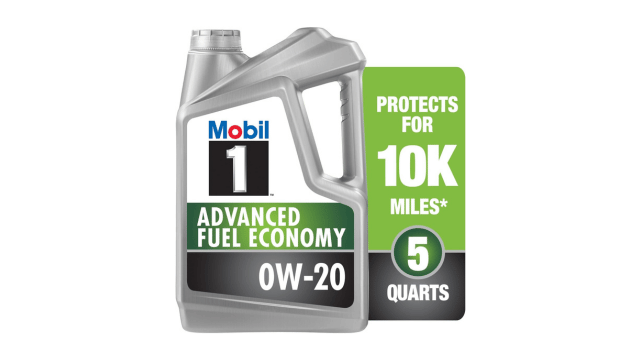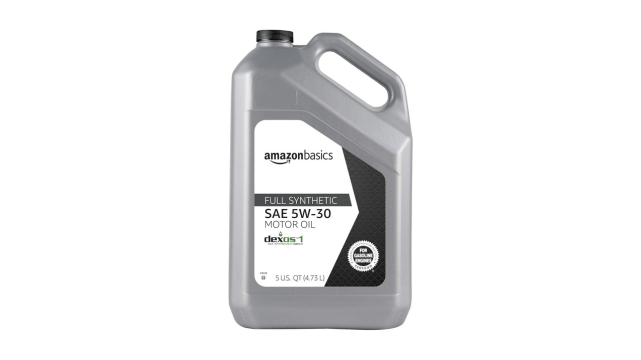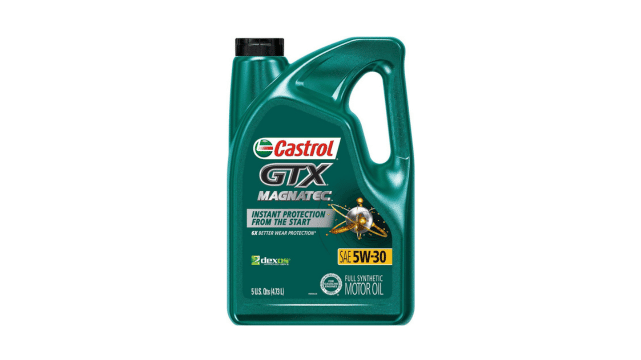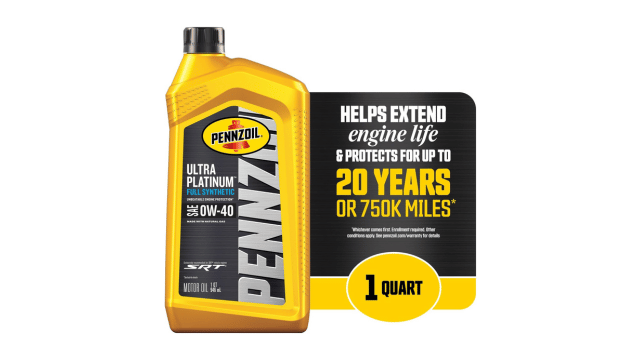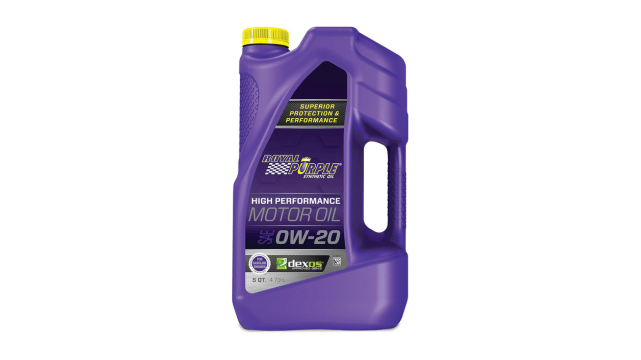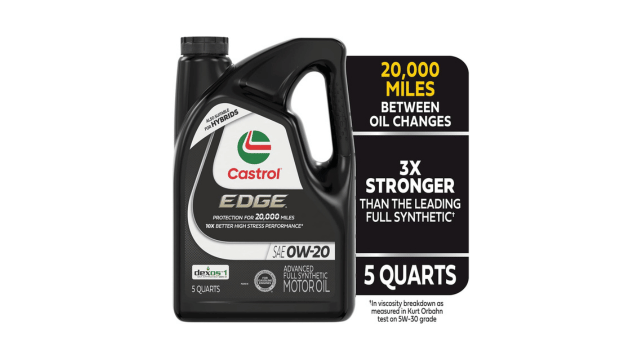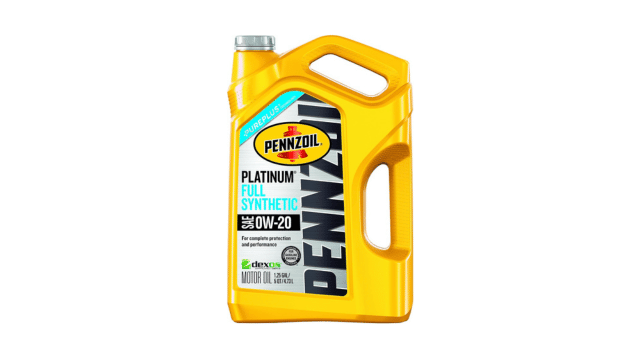Synthetic oils play a pivotal role in modern engine performance and maintenance. Unlike conventional oils, synthetic oils are engineered to provide superior protection and performance across a wide range of driving conditions. They help to enhance engine efficiency, reduce wear, and extend the lifespan of your vehicle’s engine. This guide will delve into the key aspects of synthetic oils, including their benefits, types, and how to choose the best one for your vehicle. Understanding these factors will help you make an informed decision and keep your engine running smoothly.
Best Synthetic Oils Buying Guide
Oil Viscosity
Viscosity refers to the thickness of the oil and its ability to flow at different temperatures. Synthetic oils are categorized by their SAE ratings, such as 5W-30 or 10W-40. The first number followed by “W” indicates the oil’s performance in cold temperatures, while the second number represents its performance at high temperatures.
5W-30: Ideal for cold climates due to its lower viscosity in cold temperatures.
10W-40: Suitable for warmer climates, providing better protection at high temperatures.
Choosing the correct viscosity ensures that your engine is properly lubricated regardless of the weather conditions, which is crucial for optimal performance and longevity.
Additives and Formulations
Synthetic oils contain various additives that enhance their performance. These include:
Detergents: Help to keep the engine clean by preventing sludge and deposit buildup.
Anti-Wear Agents: Protect engine parts from wear and tear.
Antioxidants: Prevent the oil from oxidizing and breaking down over time.
Understanding these additives helps in selecting an oil that meets your engine’s specific needs, improving both performance and protection.
Engine Type and Manufacturer Specifications
Not all synthetic oils are created equal. It’s essential to choose an oil that meets your vehicle’s manufacturer specifications. These specifications can usually be found in your vehicle’s owner’s manual. Different engines may require different types of oil based on their design and operating conditions. For instance:
Turbocharged Engines: May need oils with higher thermal stability.
High-Performance Engines: Often benefit from oils with advanced additives.
Always verify that the synthetic oil you select is compatible with your engine type and manufacturer requirements to avoid potential damage or inefficiencies.
Performance and Longevity
Synthetic oils are known for their superior performance and longer lifespan compared to conventional oils. Key performance metrics to consider include:
Oil Life: Synthetic oils generally last longer between changes, often up to 10,000 miles or more, compared to conventional oils.
High-Temperature Stability: Synthetic oils maintain their viscosity and effectiveness even under extreme conditions, which helps protect the engine.
Evaluating these factors ensures that you get the most out of your oil, reducing the frequency of oil changes and maintaining engine performance.
Cost vs. Value
While synthetic oils tend to be more expensive than conventional oils, they offer better performance and longer intervals between changes. When evaluating cost vs. value, consider:
Long-Term Savings: Fewer oil changes can offset the higher initial cost.
Engine Protection: Enhanced protection can lead to fewer repairs and longer engine life.
Balancing these factors helps in making a cost-effective decision that doesn’t compromise on quality.
Environmental Impact
Many modern synthetic oils are formulated to be more environmentally friendly. Look for options that are:
Low Emission: Designed to reduce the amount of harmful emissions produced by the engine.
Biodegradable: Formulated to break down more easily in the environment.
Choosing eco-friendly options supports sustainability while maintaining engine performance.
Types of Synthetic Oils
Full Synthetic Oil
Full synthetic oils are designed for optimal performance and protection. They offer:
Superior Engine Protection: Enhanced resistance to high temperatures and better lubrication.
Extended Oil Change Intervals: Last longer between changes compared to conventional oils.
These oils are ideal for high-performance and luxury vehicles that require the highest level of engine care.
Synthetic Blend Oil
Synthetic blend oils are a mix of synthetic and conventional oils. They provide:
Balanced Performance: A good compromise between cost and performance.
Enhanced Protection: Better than conventional oils but not as advanced as full synthetics.
These oils are suitable for everyday vehicles where cost-effectiveness is a priority but improved performance is still desired.
High Mileage Synthetic Oil
High mileage synthetic oils are specifically formulated for vehicles with over 75,000 miles. They offer:
Extra Protection: Enhanced additives that help reduce oil consumption and prevent leaks.
Engine Cleaning: Formulated to clean out sludge and deposits from older engines.
These oils are designed to extend the life of high-mileage engines and improve their performance.
Performance Synthetic Oil
Performance synthetic oils are engineered for extreme conditions and high-performance engines. They provide:
Enhanced Stability: Better protection under high-stress driving conditions.
Improved Efficiency: Designed to handle high temperatures and heavy loads.
These oils are ideal for performance vehicles or those frequently used in demanding driving situations.
Eco-Friendly Synthetic Oil
Eco-friendly synthetic oils focus on reducing environmental impact. They feature:
Reduced Emissions: Formulated to minimize harmful emissions.
Biodegradable Components: Designed to break down more easily in the environment.
Choosing these oils supports both engine health and environmental sustainability.
Benefits of Using Synthetic Oil
Enhanced Engine Protection
Synthetic oils provide superior lubrication, which reduces wear and tear on engine components. They offer better protection against high temperatures and extreme conditions, helping to prevent engine damage and extend its lifespan.
Improved Performance
Synthetic oils are designed to maintain their viscosity and performance across a wide temperature range. This results in better engine efficiency, smoother operation, and improved overall performance.
Increased Fuel Efficiency
By reducing engine friction, synthetic oils help improve fuel efficiency. This can lead to better mileage and lower fuel costs over time.
Longer Oil Change Intervals
Synthetic oils generally last longer than conventional oils, allowing for extended intervals between oil changes. This reduces maintenance frequency and contributes to cost savings in the long run.
Cleaner Engine Operation
Synthetic oils are less prone to forming sludge and deposits. This leads to a cleaner engine with fewer internal contaminants, resulting in better engine performance and longevity.
How to Choose the Right Synthetic Oil for Your Vehicle
Consulting the Owner’s Manual
Always refer to your vehicle’s owner’s manual for specific oil recommendations. The manual will provide information on the required oil type, viscosity, and any manufacturer-specific requirements. Adhering to these guidelines ensures optimal engine performance and avoids potential issues.
Driving Conditions
Consider your typical driving conditions when selecting synthetic oil. For example:
Extreme Temperatures: Choose oils with better cold-start performance or high-temperature stability.
Heavy Towing: Opt for oils designed to handle increased stress and temperature.
Matching the oil to your driving environment ensures better protection and performance.
Engine Age and Condition
Select an oil type based on your engine’s age and condition. For high-mileage engines, high mileage synthetic oils are recommended due to their added protection and cleaning properties. Newer engines may benefit from full synthetic or performance oils for enhanced protection and efficiency.
Brand Reputation
Consider reputable brands known for quality and reliability. Established brands often have a track record of producing high-quality oils that meet industry standards and specifications. Researching and choosing well-regarded brands can contribute to better engine health and performance.
Certifications and Standards
Look for oils that meet industry certifications such as API (American Petroleum Institute) or ACEA (Association des Constructeurs Européens d’Automobiles). These certifications ensure that the oil meets specific performance and quality standards. Additionally, some vehicles may have manufacturer-specific certifications that should be checked.
Synthetic Oil vs. Conventional Oil
Composition and Performance
Synthetic oils are made from chemically engineered base oils and additives, providing better performance compared to conventional oils, which are derived from natural crude oil. Synthetic oils offer superior stability, reduced volatility, and enhanced protection.
Cost Analysis
While synthetic oils are more expensive upfront, their extended lifespan and superior performance can offset the cost. Fewer oil changes and reduced engine wear contribute to long-term cost savings.
Maintenance and Longevity
Synthetic oils generally have longer oil change intervals compared to conventional oils. This reduces the frequency of maintenance and can lead to fewer disruptions and lower overall maintenance costs.
Environmental Considerations
Synthetic oils often have a lower environmental impact due to reduced emissions and biodegradable formulations. Conventional oils, on the other hand, may have a more significant environmental footprint.
How to Properly Use Synthetic Oil
Changing Oil
Follow recommended procedures for changing synthetic oil. This includes draining the old oil, replacing the oil filter, and adding the new synthetic oil. Adhering to proper procedures ensures that the oil change is effective and that the engine receives the full benefits of the synthetic oil.
Oil Filter Replacement
Always replace the oil filter when changing the oil. A new filter ensures that contaminants and debris are removed, providing clean oil for the engine. This step is crucial for maintaining engine health and performance.
Checking Oil Levels
Regularly monitor oil levels and quality. Check the oil level using the dipstick and ensure that it is within the recommended range. Also, inspect the oil’s color and consistency for any signs of contamination or degradation.
Handling and Storage
Properly store synthetic oil if not in use. Keep it in a cool, dry place and avoid exposing it to extreme temperatures or direct sunlight. Proper storage helps maintain the oil’s properties and effectiveness.
Common Misconceptions About Synthetic Oil
Cost vs. Value
One common misconception is that synthetic oil is too expensive. While the upfront cost is higher, synthetic oil’s extended lifespan and enhanced performance offer long-term value and cost savings through fewer oil changes and better engine protection.
Compatibility
There is a belief that synthetic oil is incompatible with older engines. However, modern synthetic oils are designed to work with a wide range of engine types, including older engines. Always consult your vehicle’s owner’s manual to ensure compatibility.
Frequency of Changes
Another myth is that synthetic oil requires more frequent changes. In reality, synthetic oil often has longer intervals between changes compared to conventional oils. Follow manufacturer recommendations for optimal intervals.
Environmental Impact
Some believe synthetic oil has a negative environmental impact. However, many synthetic oils are formulated to be more eco-friendly, with reduced emissions and biodegradable properties. Choosing eco-friendly options can further support environmental sustainability.
FAQs: Frequently Asked Questions
What is the difference between full synthetic and synthetic blend oil?
Full synthetic oil is made from chemically engineered base oils and additives, providing superior performance and protection. Synthetic blend oil is a mix of synthetic and conventional oils, offering a balance of cost and performance.
How often should I change synthetic oil?
Synthetic oil typically lasts longer than conventional oil. Change intervals can vary, but many synthetic oils last up to 10,000 miles or more. Always refer to your vehicle’s owner’s manual for specific recommendations.
Can I switch from conventional oil to synthetic oil?
Yes, you can switch from conventional oil to synthetic oil. Synthetic oils are compatible with most engines, but it’s important to follow manufacturer recommendations and ensure that the oil meets your vehicle’s specifications.
Is synthetic oil worth the extra cost?
Synthetic oil offers enhanced performance, protection, and longer oil change intervals. While it is more expensive upfront, the long-term benefits and potential cost savings through reduced maintenance and repairs make it a worthwhile investment.
What are the benefits of high-mileage synthetic oil?
High-mileage synthetic oil is designed for engines with higher mileage. It offers extra protection, reduces oil consumption, prevents leaks, and cleans out sludge and deposits from older engines.
How do I know if my vehicle requires synthetic oil?
Consult your vehicle’s owner’s manual for oil type recommendations. Some vehicles require synthetic oil for optimal performance, while others may be compatible with synthetic or conventional oils. Manufacturer specifications will provide guidance.
Are there any specific brands of synthetic oil that are recommended?
Reputable brands with a track record of quality and reliability include Mobil 1, Castrol, Valvoline, and Royal Purple. Choosing well-regarded brands ensures that you are using high-quality oil that meets industry standards.
Can synthetic oil help with fuel economy?
Yes, synthetic oil can help improve fuel economy by reducing engine friction and improving overall efficiency. This can lead to better mileage and lower fuel costs over time.
Final Verdict
Synthetic oils offer significant advantages in engine performance and maintenance, including enhanced protection, improved performance, and longer oil change intervals. Choosing the right synthetic oil based on your vehicle’s specifications and driving conditions is crucial for maximizing these benefits. Consider factors such as oil type, viscosity, and brand reputation when making your decision. By investing in high-quality synthetic oil, you are making a long-term investment in your vehicle’s health and performance, ensuring reliable operation and extended engine life.

